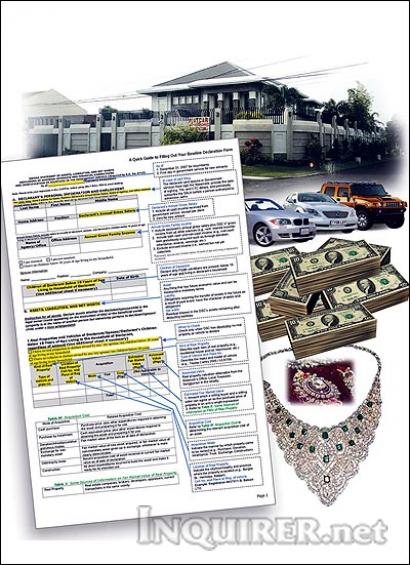By LUZ RIMBAN, AVIGAIL OLARTE, YVONNE CHUA AND ELLEN TORDESILLAS
 IF Filipinos are wondering how government officials and employees become millionaires overnight, buying expensive cars, moving to upscale homes, or taking frequent trips abroad, the answers can be partly found by checking their Statement of Assets, Liabilities and Networth (SALN).
IF Filipinos are wondering how government officials and employees become millionaires overnight, buying expensive cars, moving to upscale homes, or taking frequent trips abroad, the answers can be partly found by checking their Statement of Assets, Liabilities and Networth (SALN).
A SALN is a document that all those serving in government—from the lowliest clerk to the President—are required to submit. It discloses how much money they have, what property they own, what companies and businesses they have interests in, how much they owe and who their relatives in government are.
The disclosure includes not just the officials’ own assets and liabilities, but even those of their spouses and children below 18.
(This article was written for the Philippine Daily Inquirer’s “Talk of the Town.” Read the full text in the Inquirer. Also read “SALN violators: No big fish since Marcelo’s time” and “Where to get SALN.”)
